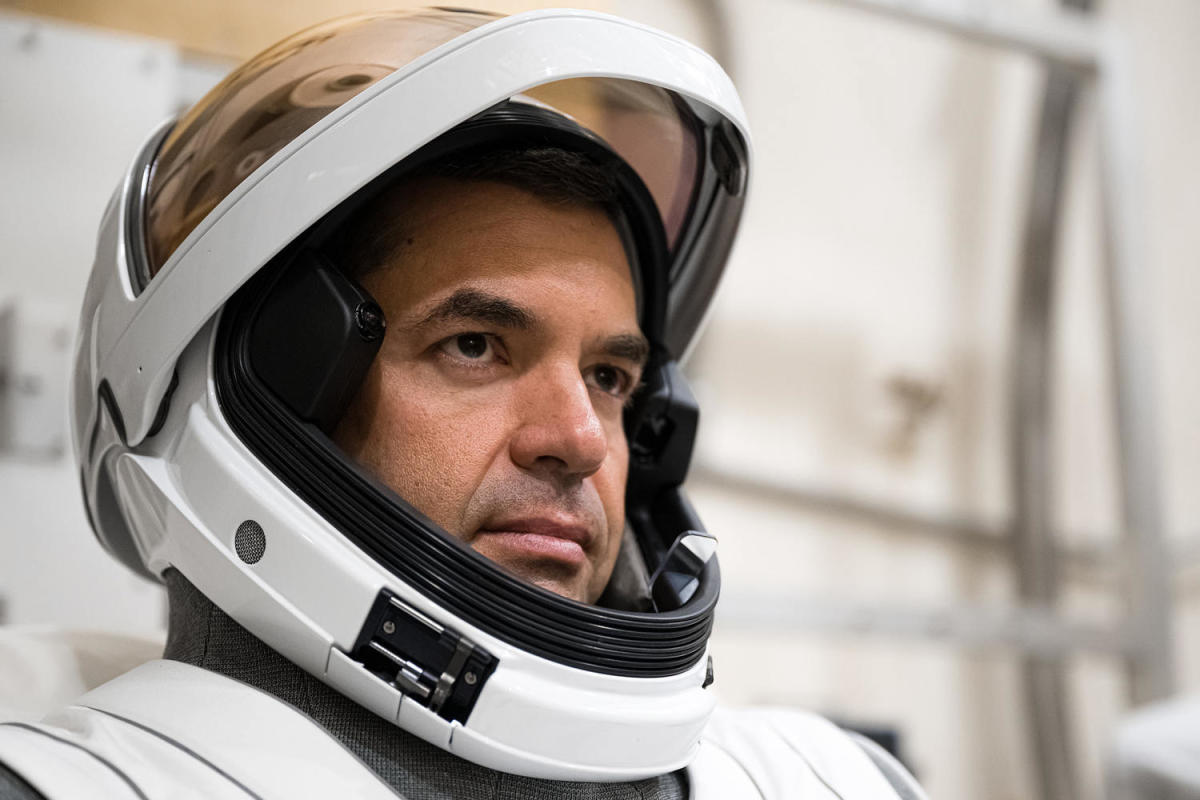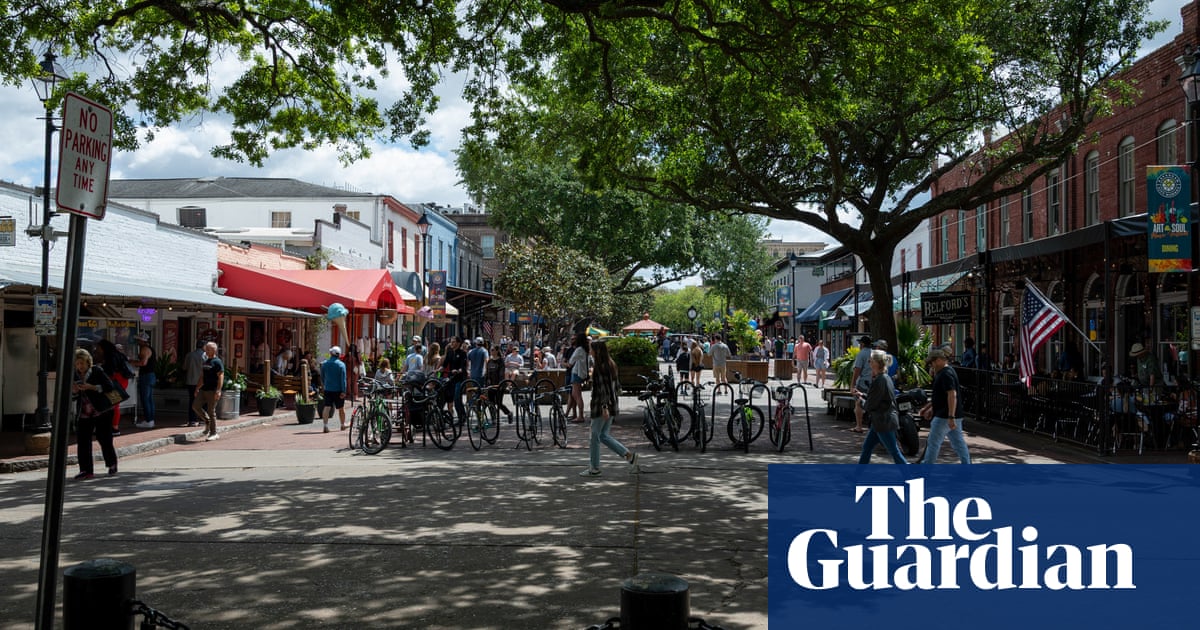Donald Trump’s proposal to reopen Alcatraz, the infamous prison shuttered more than 60 years ago, sparked global headlines over the weekend. But it isn’t the only notorious closed-down jail or prison the administration has sought to repurpose for mass detentions.
The US government has in recent months pushed to reopen at least five other shuttered detention facilities and prisons, some closed amid concerns over safety and mistreatment of detainees. While California lawmakers swiftly dismissed the Alcatraz announcement as “not serious” and a distraction, the Trump administration’s efforts to reopen other scandal-plagued facilities are well under way or already complete, in partnership with for-profit prison corporations.
The shuttered prisons are being revived for immigration detainees, unlike the US president’s purported plan for Alcatraz, which he claimed on social media would imprison “America’s most ruthless and violent Offenders”.
US Immigrations and Customs Enforcement (Ice) has sought to reopen the California city correctional facility, a state prison in the southern California desert region that closed last year, according to government contract records. The facility is owned by CoreCivic, a longtime Ice detention partner, and previously housed more than 2,000 people.
California Democrats have also warned that Ice was interested in reopening Federal Correctional Institution (FCI) Dublin, a US prison shuttered last year amid scandals surrounding systemic sexual abuse by staff, and concerns about mold and asbestos. The correctional officers’ union has reported that staff were recently forced to do maintenance work at Dublin in hazardous conditions, seemingly to prepare for a reopening, but Ice and the US Bureau of Prisons (BoP), which runs Dublin, have not commented on plans.
Communities in California, the country’s most populous state and home to nearly a quarter of immigrants in the US, have long opposed Ice detention centers, and there are currently no Ice jails in the state north of Bakersfield in the Central Valley, said Susan Beaty, senior attorney for the California Collaborative for Immigrant Justice.

“When there are fewer beds for Ice to incarcerate people, there are fewer arrests and less enforcement,” said Beaty, who represents people in Ice and BoP detention. “We don’t want Ice to expand their ability to cage our community members, because we know that will lead to more incarceration and allow them to terrorize our communities even further.”
In rural Lake County, Michigan, Geo Group, another prison corporation, is reopening the closed North Lake correctional facility, which has capacity for 1,800 people and would be the largest immigration detention center in the midwest, according to local news site MLive.com. Over the years, the facility has housed imprisoned teenage boys, out-of-state incarcerated people and immigrants. But it has sat dormant since it closed in 2022 under the Biden administration.
In 2020, detainees at North Lake went on a hunger strike, alleging they were denied access to their mail and religiously appropriate food, their complaint paperwork was destroyed, and they were placed in extended solitary confinement. Geo Group denied the claims at the time.
In Newark, New Jersey, Geo Group has recently reopened the closed Delaney Hall facility for immigration detainees even as the company faces a pending lawsuit from the city alleging it failed to file required construction permits or allow inspectors inside, according to news site NorthJersey.com.
“They are following the pattern of the president … who believes that he can just do what he wants to do and obscure the laws,” Newark mayor, Ras Baraka, said on Monday.
Christopher Ferreira, a Geo Group spokesperson, said in an email that the firm has a “valid certificate of occupancy” and complies with health and safety requirements. The mayor’s opposition was “another unfortunate example of a politicized campaign by sanctuary city and open borders politicians in New Jersey to interfere with the federal government”, he added.
In a December 2024 earnings call, Geo Group said it was in “active discussions” with Ice and the US marshals service about their interest in six of its facilities that were idle.
In Leavenworth, Kansas, CoreCivic is working to reopen an immigration detention center closed in 2021 under Joe Biden. The proposal for the Midwest Regional Reception Center (MRRC) has sparked backlash from the city of Leavenworth, which sued CoreCivic in March, alleging the company has not followed the proper permitting protocols.

In 2021, the ACLU alleged that the Leavenworth facility was beset by problems, including frequent stabbings, suicides and contraband, and that “basic human needs [were] not being met”, with food restricted, contact with counsel and family denied or curtailed, limited medical care and infrequent showers. A federal judge called the facility a “hell hole”.
Ryan Gustin, a CoreCivic spokesperson, defended the company’s decades of operations in Leavenworth in an email on Monday, saying understaffing amid the pandemic “was the main contributor to the challenges” and “the issues were concentrated in about an 18-month period”: “We’re grateful for a more stable labor market post-pandemic, and we’ve had a positive response with nearly 1,400 [applicants] expressing interest in one of the 300 positions the facility will create.”
“At any of our facilities, including MRRC, we don’t cut corners on care, staff or training, which meets, and in many cases exceeds, our government partners’ standards,” he said. He also pointed to a recent op-ed by the warden, who argued the facility “is and always has been properly zoned”.
CoreCivic also reopened a family detention center in Texas last month.
The use of shuttered prisons is just one way Ice is expanding detention for Trump’s mass deportations. He has also moved immigration detainees into BoP facilities currently housing criminal defendants, causing concerns about poor conditions, rights violations and a lack of basic resources as staff manage multiple populations under one roof. Trump has also pushed to expand local jail contracts and use military bases for Ice.
Eunice Cho, senior staff attorney at the ACLU’s National Prison Project, which has obtained public records on Ice’s expanding detention, said Ice was ignoring safety concerns in previously shuttered facilities.
“This is a continuing pattern of the Trump administration’s willingness to knowingly place immigrants in detention facilities already well-known for having dangerous conditions,” she said. “They’re putting people in facilities where the conditions are so dire … that people simply give up their valid claims of relief to stay in the United States.”
There is growing local backlash to these facilities, Cho added: “When people realize what is happening in these facilities, it’s not something they want to see up close. People are becoming very aware that billions of dollars are being spent to enrich private prison companies to hold people in abysmal conditions … including their neighbors, coworkers and friends.”
Ice did not respond to a request for comment on Monday.
Donald Murphy, a BoP spokesperson, did not answer questions about the reported reopening of Dublin for Ice. William K Marshall III, BoP director, said in a statement that the bureau would “vigorously pursue all avenues to support and implement the president’s agenda” and had ordered an “immediate assessment” to determine “our needs and the next steps” for Alcatraz: “We look forward to restoring this powerful symbol of law, order, and justice.”
Corene Kendrick, ACLU National Prison Project deputy director, dismissed Trump’s Alcatraz statement as a “stunt”, noting that the prison’s cellblock has no running water or sewage and limited electricity.
“I don’t know if we can call it a ‘proposal’, because that implies actual thought was put into it,” she said. “It’s completely far-fetched and preposterous, and it would be impossible to reopen those ancient, crumbling buildings as anything resembling a functioning prison.”

 German (DE)
German (DE)  English (US)
English (US)  Spanish (ES)
Spanish (ES)  French (FR)
French (FR)  Hindi (IN)
Hindi (IN)  Italian (IT)
Italian (IT)  Russian (RU)
Russian (RU)  3 weeks ago
3 weeks ago
























Comments